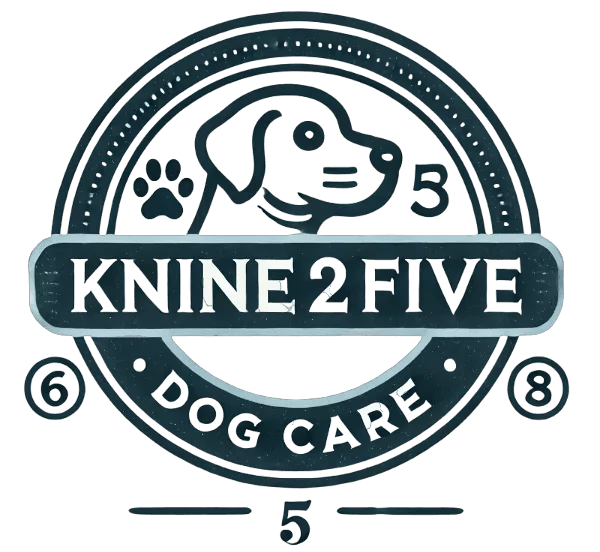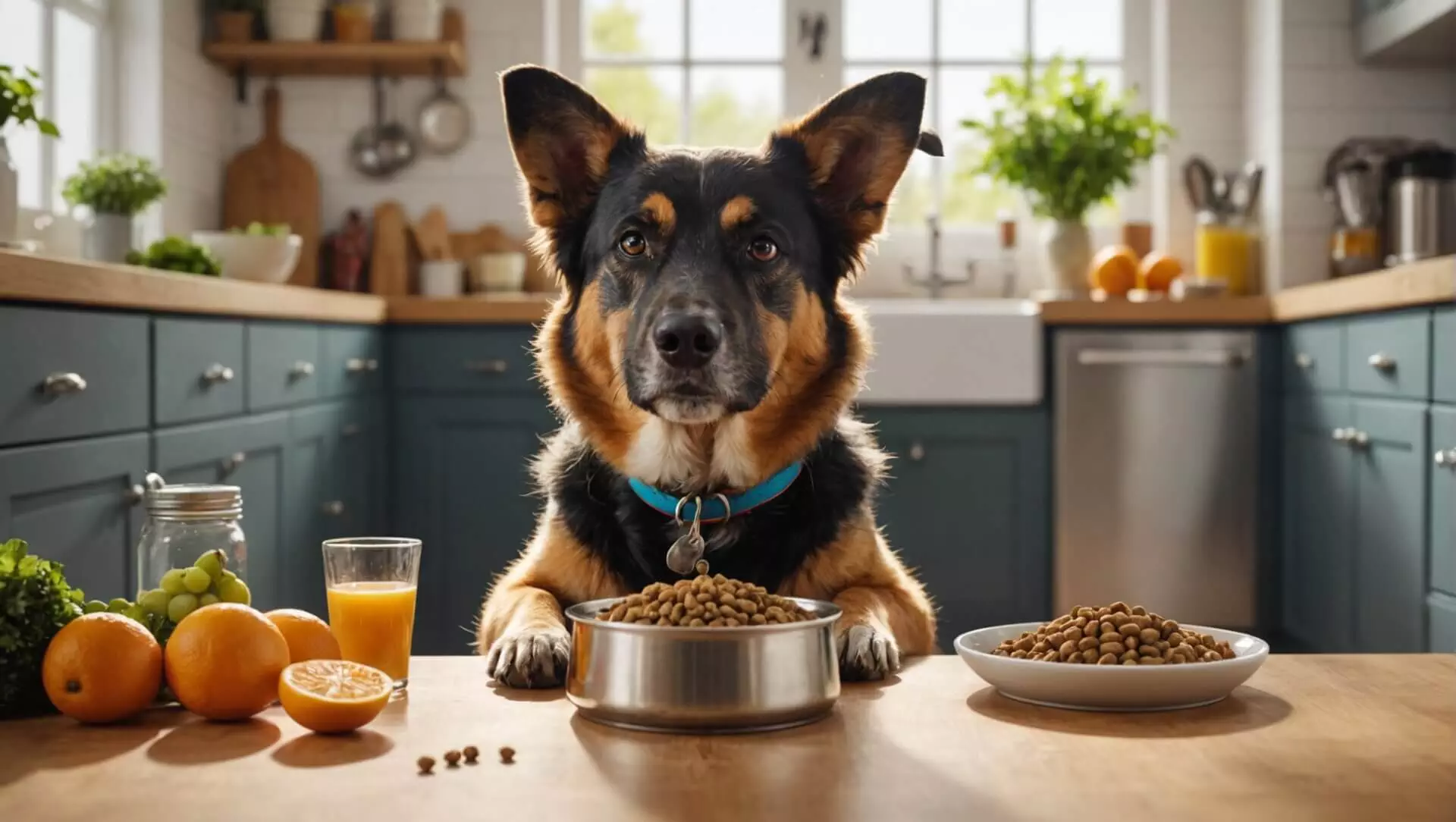Choosing the right dog food can make all the difference for your furry friend—and not just for their energy levels! In fact, the best dog food for less poop can help keep your yard cleaner and your pup happier. Imagine if you could reduce the amount of mess your dog leaves behind just by changing their diet. It’s not just about convenience; the right nutrition can also improve your dog’s overall health and digestion.
If you don’t pay attention to what your dog is eating, you might end up with more clean-up than you bargained for. In this article, we’ll explore how certain foods can lead to firmer stools, discover the best brands for less poop, and learn about transitioning your dog to a new diet smoothly. Get ready to dive into a world of pet care that makes both you and your dog feel great—let’s get started!
Quick Recommendations on Dog Food
Purina Pro Plan: Veterinarian-recommended formula providing comprehensive nutrition with 30% protein and 20% fat, ideal for active dogs requiring premium muscle support and energy levels.
Nature's Recipe: Excellent grain-free option with sweet potato and pumpkin, perfect for dogs with food sensitivities while maintaining optimal digestive health.
Hill's Science Diet: Science-backed nutrition featuring clinically proven antioxidant blend, particularly beneficial for dogs with specific health needs and life stage requirements.
Taste of the Wild: Premium wild-inspired nutrition with species-specific probiotics and real meat protein, ideal for pet parents seeking natural, high-quality ingredients.
AvoDerm: Unique formula enriched with avocado oils and omega fatty acids, exceptional for dogs needing extra skin and coat support.
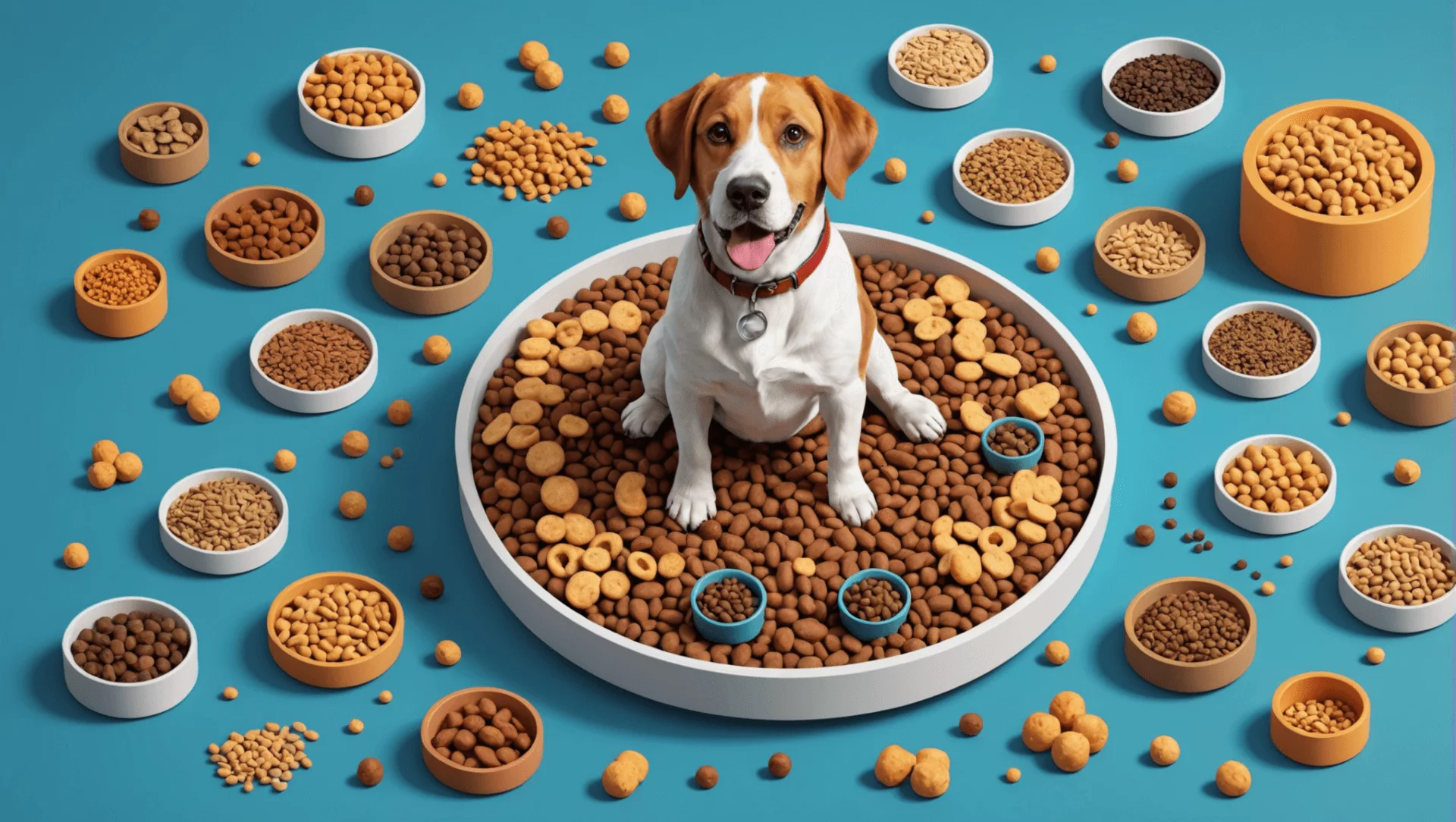
Understanding Dog Poop: What It Means for Your Pet’s Health
Dog poop can reveal much about a dog’s health. Owners should observe their dog’s feces, as it reflects their diet and overall well-being. Firm, well-formed stools usually show good health. However, changes in poop can signal dietary issues or health problems. Knowing what affects dog poop can help owners keep their pets healthy.
What Factors Influence Dog Poop Quality?
Several factors can affect the quality of dog poop, including:
- Diet Composition: The type of food a dog consumes plays a vital role in digestion and stool quality. Foods high in soluble fiber can lead to firmer stools. Fiber absorbs water and adds bulk to the stool, making it easier for dogs to pass. [Source]
- Health Conditions: Various health issues can change stool quality. Conditions such as allergies, infections, or gastrointestinal problems can cause diarrhea or constipation. If a dog frequently has abnormal stools, consulting a veterinarian is essential. [Source]
Understanding these factors allows owners to make informed decisions about their dog’s diet and care.
Why Dog Food Matters for Less Poop?
Choosing the right dog food is crucial for reducing the volume of poop. Here are key reasons dog food matters:
- Quality Ingredients: High-quality proteins and fibers can reduce waste. Brands like Purina Pro Plan are often recommended for their balanced nutrients that support digestive health. Their quality helps ensure dogs absorb more nutrients and produce less waste. [Source]
- Prebiotic Fiber: Dog foods containing prebiotic fibers help regulate bowel movements and improve gut health. Prebiotics serve as food for beneficial gut bacteria, promoting a healthy digestive environment. This can lead to firmer stools and less frequent popping, as the digestive system operates more efficiently. [Source]
By focusing on high-quality dog food, pet owners can improve their dog’s digestion and reduce the frequency of poop.
The Role of Raw Diet in Managing Dog Poop
Some dog owners opt for a raw diet, which typically includes high-quality meat and fewer fillers. Here are the benefits of raw diets:
- Raw Diet Benefits: Many dog owners report that a raw diet results in firmer, less frequent stools. This diet mimics what wild canines eat, which may be gentler on their digestive systems. Transitioning to a raw diet should be done carefully, as it may not suit every dog. [Source]
Understanding the role of diet—whether dry kibble or raw food—is vital for managing a dog’s stool quality and frequency. By paying attention to diet composition and selecting the right food, pet owners can help their dogs maintain good health and reduce the amount of poop they produce.
Comparison of Top Dog Food Brands for Less Poop
This comparison highlights the top dog food brands that meet the unique dietary needs to help you choose the best nutrition for your furry friend.
| Image | Product Name | Key Features | Best For | CHECK PRICE |
|---|---|---|---|---|
 | Purina Pro Plan | High-protein content Supports muscle maintenance Enhanced with essential nutrients | Active Dogs | CHECK PRICE |
 | Nature's Recipe | Grain-free Real meat and vegetables Promotes digestive health | Dogs with Sensitive Stomachs | CHECK PRICE |
 | Hill's Science Diet | Scientifically balanced Supports immune health High-quality ingredients | Overall Health Maintenance | CHECK PRICE |
 | Taste of the Wild | High-protein, grain-free Real meat sources Rich in antioxidants | Active and Energetic Dogs | CHECK PRICE |
 | AvoDerm | Omega-enriched for skin health Natural ingredients Promotes a shiny coat | Dogs Needing Healthy Skin and Coat | CHECK PRICE |
The Best Dog Food Options for Less Poop
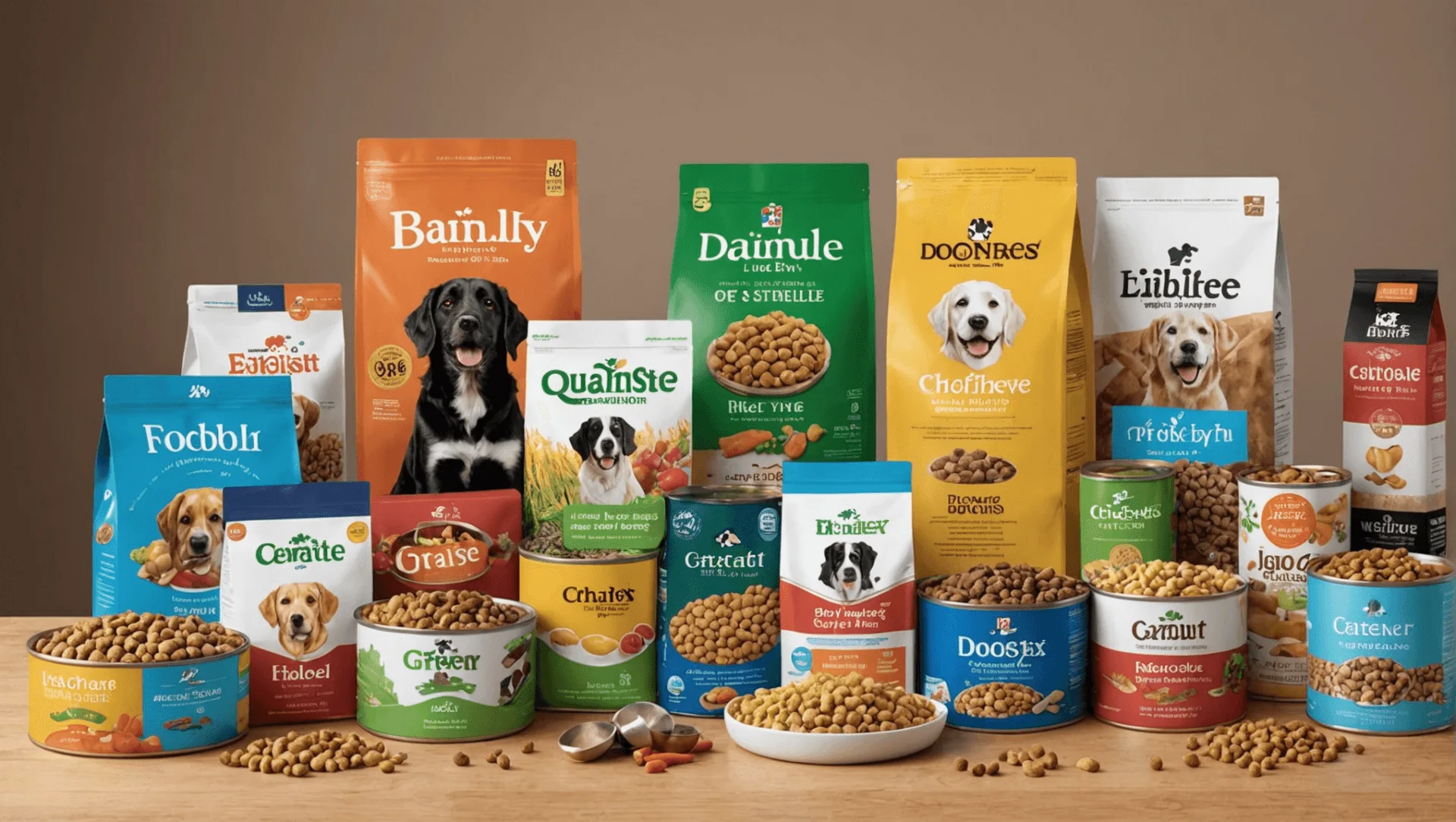
Choosing the right dog food can significantly reduce the amount of poop a dog produces. Here are some top recommendations that focus on high-quality ingredients and easy digestibility.
1. Purina Pro Plan
 CHECK PRICE
CHECK PRICE
Purina Pro Plan is a trusted brand that offers easily digestible dog food. It contains probiotics, which are beneficial bacteria that support your dog’s digestive health. This food is specially designed for dogs who need to produce less waste.
- Key Features:
- First ingredient is real chicken
- Probiotics for healthy digestion
- High in protein for muscle maintenance
- No fillers like corn or soy
- Great for dogs with sensitive stomachs
- Pros
Cons
Highly digestible
Some dogs may not prefer the taste
Supports gut health
Slightly higher cost - Best For:
- Dogs with sensitive stomachs
- Owners wanting a reliable brand
- Pet owners focused on digestible, quality ingredients
2. Nature’s Recipe
 CHECK PRICE
CHECK PRICE
Nature’s Recipe provides a formula for easy digestion. This dog food features real chicken and whole barley, both of which promote healthy digestion and reduce fecal output.
- Key Features:
- Real chicken for high protein content
- Whole grains like barley for energy
- No artificial preservatives or colors
- Formulated to help reduce waste
- Rich in vitamins and minerals
- Pros
Cons
Formulated for sensitive digestions
Fewer flavor options
Whole grains for energy
Some dogs may have grain allergies - Best For:
- Dogs needing a balanced diet
- Dogs transitioning from lower-quality foods
- Owners wanting a grain-inclusive option
3. Hill’s Science Diet
 CHECK PRICE
CHECK PRICE
Hill’s Science Diet is renowned for its digestibility and nutritional value. Developed by veterinarians, this food supports overall health while minimizing poop volume.
- Key Features:
- Quality protein for lean muscle maintenance
- Balanced nutrients for overall well-being
- Easy-to-digest ingredients
- Suitable for adult dogs of all sizes
- Enriched with antioxidants for immune support
- Pros
Cons
Vet recommended
Higher price
Aids in weight management
May not suit all taste preferences - Best For:
- Adult dogs needing weight management
- Pet owners seeking scientifically backed nutrition
- Dogs requiring a vet-recommended diet
4. Taste of the Wild
 CHECK PRICE
CHECK PRICE
Taste of the Wild is known for its premium ingredients and unique protein sources. This grain-free option mimics a dog’s natural diet, aiding digestion and reducing poop production.
- Key Features:
- Unique protein sources like roasted bison and venison
- Grain-free formula for sensitive dogs
- Antioxidants from fruits and vegetables
- High in protein for active dogs
- No fillers or artificial ingredients
- Pros
Cons
Grain-free for sensitive tummies
Some dogs may need a gradual transition
High protein content
Can be pricier than other brands - Best For:
- Active dogs needing high protein
- Owners wanting a grain-free diet
- Dogs with food sensitivities
5. AvoDerm
 CHECK PRICE
CHECK PRICE
AvoDerm emphasizes natural ingredients and is linked to less fecal output. It includes avocados, rich in fatty acids that promote healthy skin and coat.
- Key Features:
- Avocado for healthy fats and nutrients
- Real meat as the first ingredient
- No artificial additives
- Supports a shiny coat and healthy skin
- Enhanced with vitamins and antioxidants
- Pros
Cons
Natural ingredients
Some pets may not enjoy the taste
Supports skin health
May not suit all dogs - Best For:
- Dogs prone to skin issues
- Pet owners seeking natural nutrition
- Dogs needing a balanced diet with healthy fats
Choosing the best dog food for less poop can lead to healthier digestion and a happier pet. Each of these options offers unique benefits to help reduce waste and maintain optimal health. Always consult with a veterinarian before changing a dog’s diet.
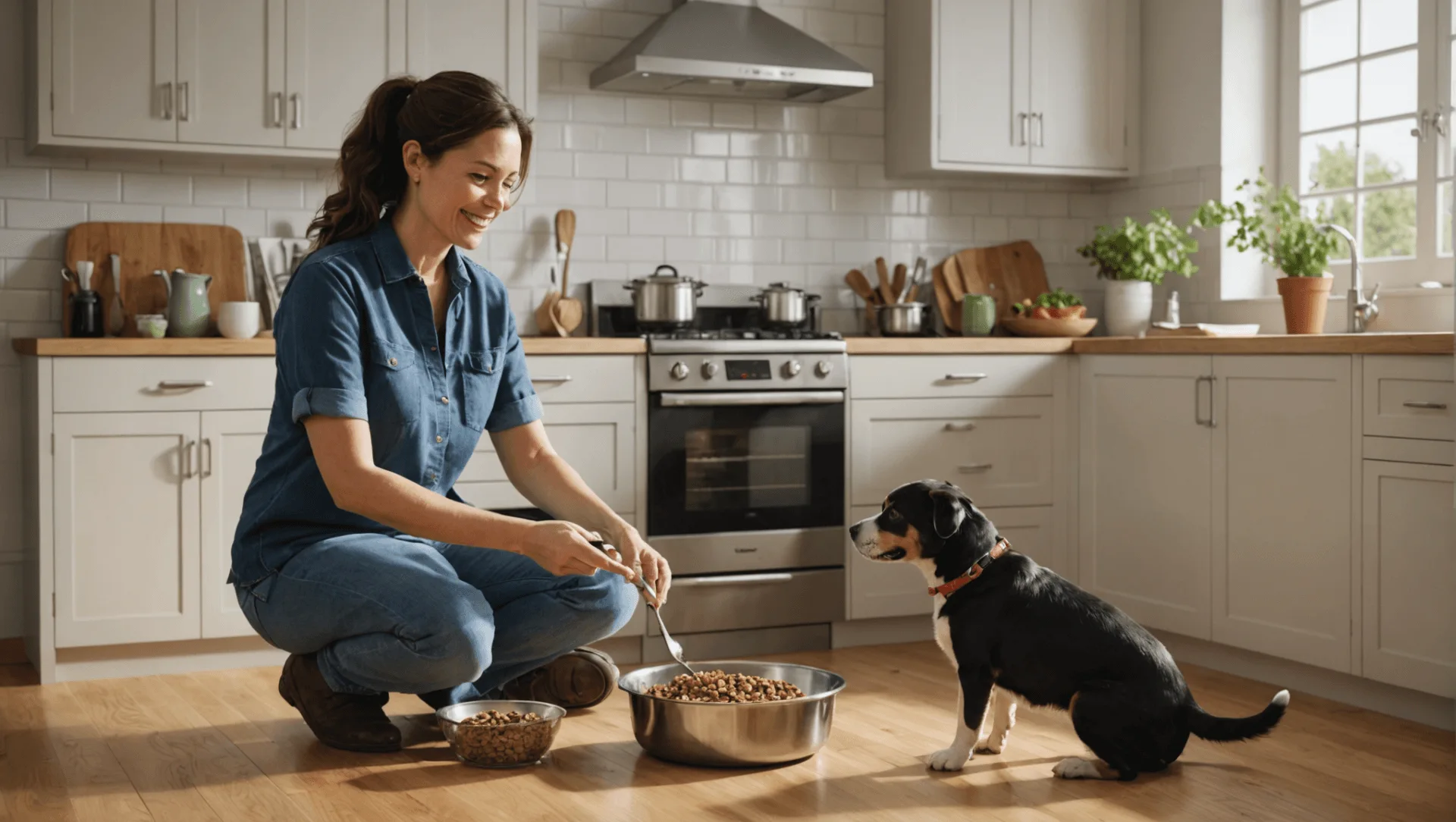
How to Transition Your Dog to a New Food for Less Poop
Changing a dog’s diet can improve health and decrease the amount of poop produced. Transitioning to new dog food should be done carefully to help the dog’s digestive system adjust. Below are important steps to follow during this process.
Signs Your Dog Needs Different Dog Food
Several signs may show a dog needs a different type of food. Observing these signs can help determine if a diet change is necessary:
- Frequent Diarrhea: Loose or watery stools often signal that the current food is not suitable.
- Inconsistent Stool Quality: Dogs should have firm, well-formed poop. If the stool texture varies, the food may not be digestible.
- Changes in Energy Levels: Their diet may affect a dog that seems lethargic or overly energetic without an obvious reason.
- Weight Changes: Unexpected weight loss or gain can show that the dog food is not meeting nutritional needs.
Recognizing these signs early allows pet owners to adjust their dog’s diet for better health.
Gradually Introducing New Dog Food for Better Digestion
When introducing new dog food, a gradual transition is crucial. This minimizes digestive upset and helps the dog adapt. Follow these steps:
- Start Slowly: Mix 25% of the new food with 75% of the old food. Keep this mixture for 3-4 days.
- Increase the New Food: After the first few days, adjust the ratio to 50% new food and 50% old food.
- Further Adjustments: Continue this process until the dog is eating 100% of the new food, which can take about 7-10 days.
- Monitor Reactions: Watch how the dog responds during this transition. Signs of digestive upset, such as vomiting or diarrhea, may require slowing down the transition or consulting a veterinarian.
This gradual approach helps avoid digestive issues and can lead to healthier bowel movements.
Monitoring Changes in Dog Poop After Switching Food
After switching to new food, it is important to monitor any changes in the dog’s poop. This can provide insight into how well the new diet is working. Look for:
- Frequency: Observe if the dog is pooping less frequently. High-quality food may lead to less waste.
- Consistency: The poop should become firmer and more consistent, showing that the new food is suitable.
- Color and Smell: Changes in these factors can also show how well the food is digested. Healthy stool is typically brown and should not have a strong, foul odor.
If significant issues arise, such as persistent diarrhea or unusual stool characteristics, consulting a veterinarian is advisable. They can provide tailored recommendations based on the dog’s specific needs. In addition to seeking veterinary advice, pet owners may want to explore various puppy potty training tips that can help manage and minimize accidents during this time. Establishing a consistent bathroom schedule and recognizing the signs that a puppy needs to go outside can greatly enhance the training process. By being proactive and informed, pet owners can ensure a smoother transition for their furry companion during this critical stage.
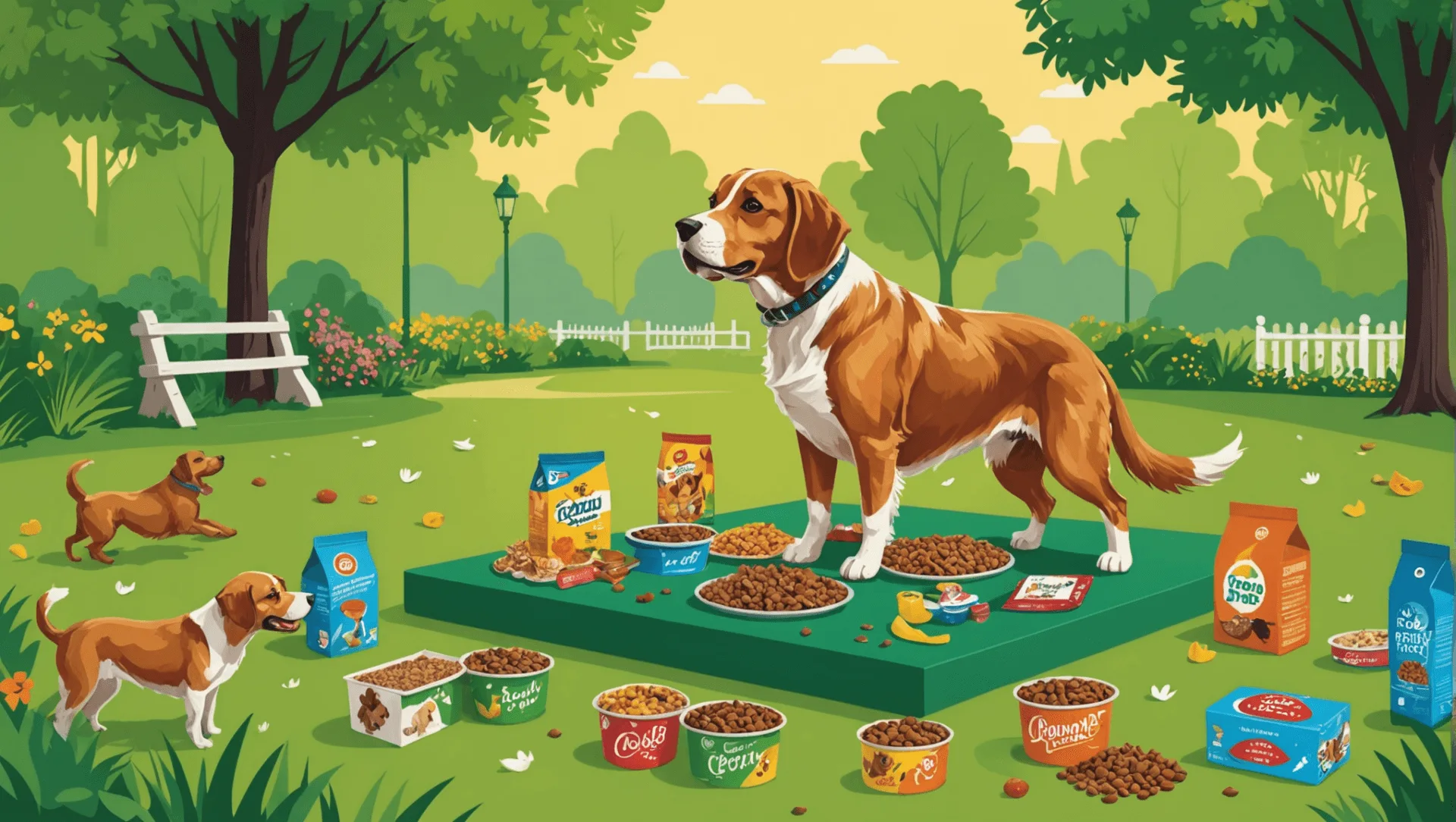
Expert Recommendations on Dog Food for Less Poop
Top Brands Known for Reducing Dog Poop
Many dog food brands are recognized for using quality ingredients that help lessen the amount of poop dogs produce. Here are some top choices:
- Purina Pro Plan: This brand features probiotics that promote gut health and is made with high-quality ingredients to improve digestion.
- Nature’s Recipe: Designed for dogs with sensitive stomachs, this food contains prebiotic fibers that support digestion and may reduce stool output.
- Hill’s Science Diet: Known for balanced nutrition, this food provides the right fiber amount to support digestion and decrease poop frequency.
- Taste of the Wild: This brand offers grain-free options with high protein, which can lead to firmer stools and less waste.
- AvoDerm: Recognized for using natural ingredients, this brand is suitable for sensitive dogs and helps maintain healthy digestion.
Nutrients to Look for in Dog Food to Decrease Pooping
When choosing dog food that may help reduce poop, consider these key nutrients:
- Prebiotic Fibers: These natural fibers support healthy gut bacteria, promoting better digestion and firmer stools.
- High Protein Levels: Foods with high-quality animal proteins, such as chicken, lamb, or fish, can lead to firmer stools and less waste.
- Digestible Carbohydrates: Ingredients like sweet potatoes and rice are excellent sources of carbohydrates that are easy to digest, reducing stool bulk.
- Omega Fatty Acids: These nutrients help maintain healthy skin and coat and support gut health.
- Probiotics: Beneficial bacteria that support a healthy digestive system, helping to balance gut flora and potentially reducing bowel movements.
Vet Insights on Best Dog Food for Less Poop
Veterinarians highlight the role of diet in managing dog poop. Here are some expert insights:
- High-Fiber Diets: Many vets recommend high-fiber diets to enhance digestion and reduce stool size. Fiber regulates bowel movements and may prevent gastrointestinal issues.
- Quality Ingredients: Foods with high-quality, real ingredients—without fillers or artificial additives—are typically better for dogs’ digestive health. Fillers can lead to poor digestion and more waste.
- Regular Consultations: Consulting with veterinarians when selecting dog food is crucial. Personalized advice based on a dog’s health needs and lifestyle can improve outcomes in managing poop frequency.
- Monitoring Changes: After changing dog food, it is essential to monitor any shifts in poop consistency and frequency. This helps determine if the new food is effective.
These recommendations can guide pet owners in choosing the best dog food for less poop, leading to a healthier and more comfortable pet.
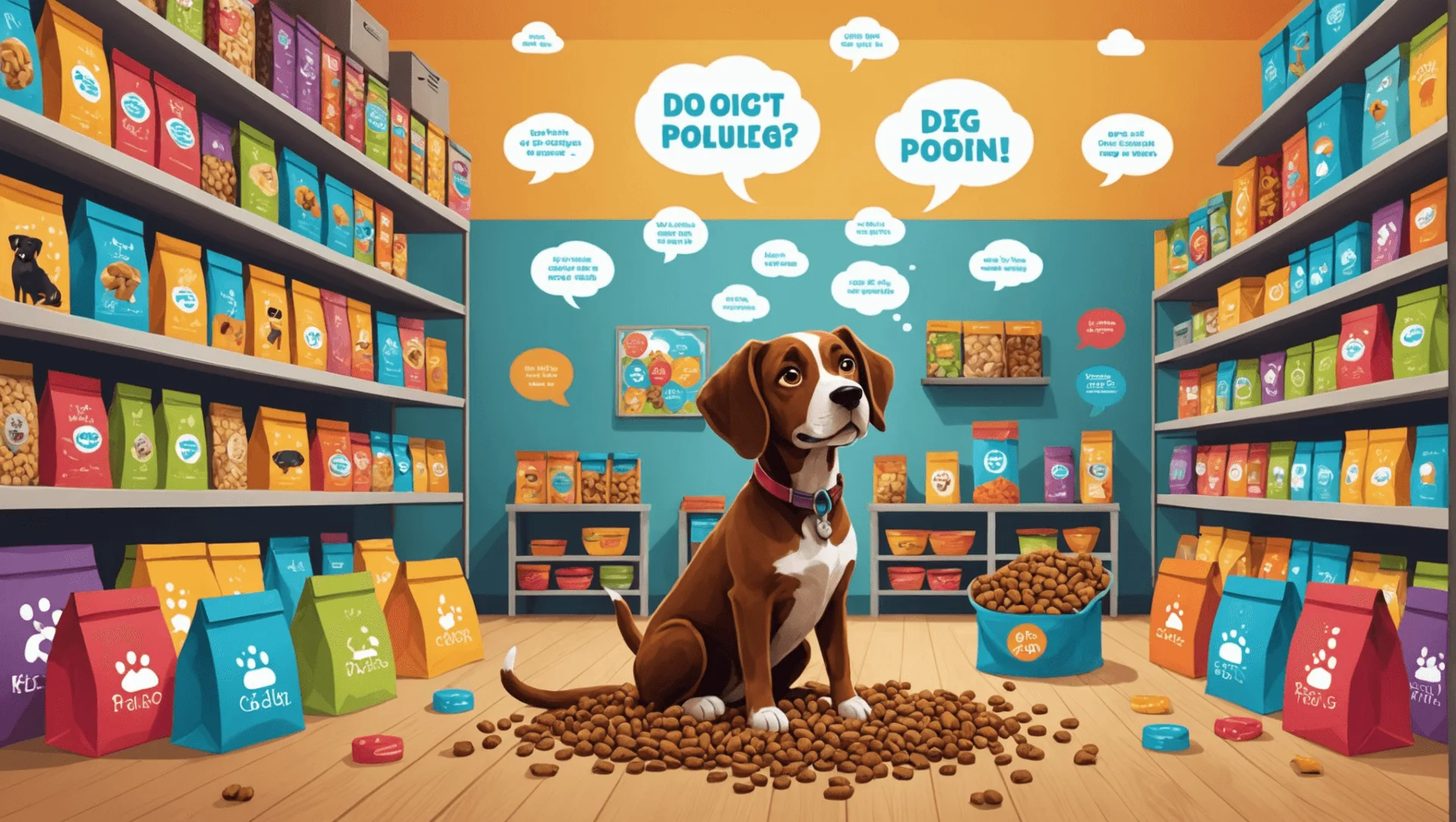
Common Misconceptions About Dog Food and Pooping
Do All Kibble Brands Lead to More Dog Poop?
Many people think that all kibble causes dogs to produce more waste. This belief is incorrect. Kibble quality varies significantly among brands. High-quality kibble made from real meat and fewer fillers can actually reduce waste. Experts agree that kibble that is easier to digest leads to less poop. Therefore, choosing kibble that is rich in protein and low in fillers can help decrease the amount of waste produced. [Just Food For Dogs]
The Myth of “Dog Poop Equals Quality Dog Food,”
Another common myth is that more poop means better quality dog food. This is misleading. In reality, a large amount of poop often shows that the food is hard to digest and contains many fillers. Good dog food should support digestion, allowing dogs to absorb more nutrients and produce less waste. Thus, less poop can show better nutrition, not the opposite.
Understanding Dog Digestive Health Myths
There are many misunderstandings about what makes dog food healthy. Some people believe all dog food is the same, but that’s not true. Ingredient transparency and nutritional value are crucial for good digestive health. A balanced diet with high-quality ingredients promotes a healthy digestive system and overall health for dogs. Pet owners should seek simple information about the ingredients in their dog’s food to ensure optimal nutrition.
By debunking these myths, dog owners can make more informed choices about their pets’ diets. Selecting higher-quality dog food that is easy to digest can lead to less poop and better overall health for dogs.
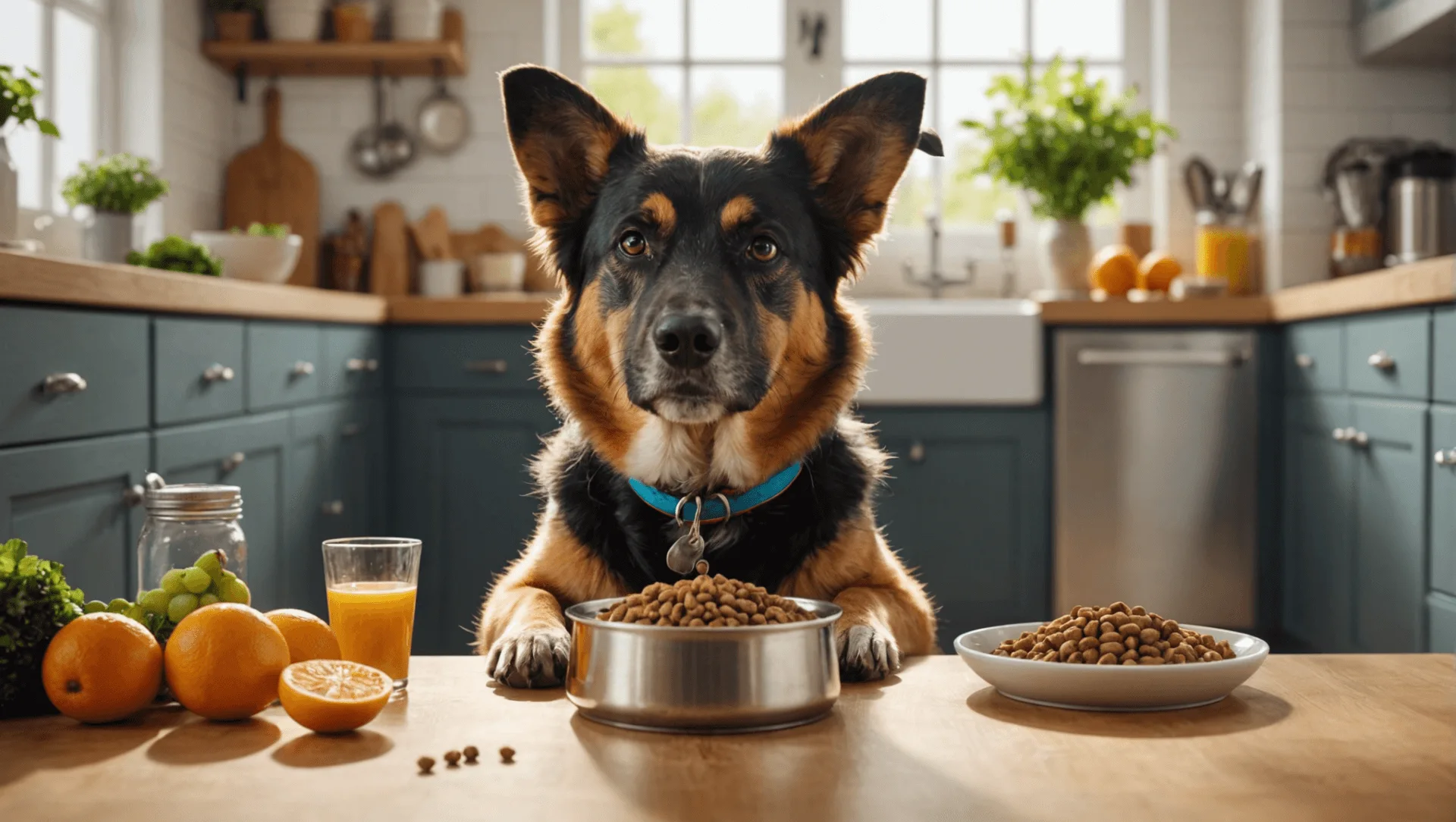
Future Trends in Dog Food and Poop Management
Innovations in Dog Food for Optimal Digestive Health
Pet owners want to enhance their dogs’ digestive health. New innovations in dog food are emerging, focusing on ingredients that improve gut health, reduce waste, and boost overall well-being. Here are some key trends: Probiotics and prebiotics are becoming staple ingredients, as they promote a balanced gut microbiome. Additionally, more brands are formulating specialized options like the best dry dog food for lipomas, catering to dogs with specific health concerns by using nutrient-rich, anti-inflammatory ingredients. Grain-free and limited-ingredient diets are also growing in popularity, as they help minimize sensitivities and support optimal digestion.
- Prebiotic and Probiotic Ingredients: Many brands now incorporate prebiotics and probiotics into their recipes. Prebiotics are a type of fiber that feeds good gut bacteria, while probiotics are live bacteria that aid digestion. Together, they help maintain a healthy balance in the gastrointestinal tract, resulting in firmer stools and less poop.
- High-Quality Protein Sources: Quality proteins, such as chicken, fish, and lamb, are becoming more common in dog food. These proteins are easier to digest and provide essential nutrients for dogs. Improved digestion can lead to less waste.
- Natural Ingredients: There is a growing demand for natural ingredients in dog food. Owners prefer foods without fillers, artificial colors, or preservatives. Natural diets can be easier to digest, leading to better stool quality.
- Grain-Free Options: Grain-free diets are popular among dog owners. Many dogs thrive without grains, which can sometimes cause digestive issues. Grain-free foods often use alternative carbohydrates like sweet potatoes or peas, which support digestion.
- Tailored Diets: Custom dog food that meets specific nutritional needs is on the rise. Tailored diets can address food sensitivities or allergies, promoting healthier digestion and less poop. These diets typically use fewer, but higher-quality, ingredients.
These innovations in dog food are crucial for promoting optimal digestive health. By focusing on high-quality ingredients and the right nutrients, pet owners can help reduce their dogs’ poop naturally.
The Growing Popularity of Human-Grade Dog Food
Human-grade dog food is quickly gaining traction among pet owners. This type of dog food is made from high-quality ingredients suitable for human consumption. Here are some reasons for this trend:
- Higher Nutritional Standards: Human-grade dog food often meets stricter safety and quality standards. This means fresher, more nutritious ingredients that contribute to better overall health for dogs. A balanced diet can enhance digestion and reduce poop.
- Transparency in Ingredients: Pet owners are increasingly aware of their dogs’ diets. Human-grade food labels provide simple information about ingredients and sourcing, making it easier for owners to understand what their pets consume.
- Taste and Appeal: Many dogs enjoy the taste of human-grade food. This can make mealtime more enjoyable for pets and ensure they receive necessary nutrients. Happier dogs often have better digestion.
- Reduced Waste Production: High-quality, digestible human-grade dog food can lead to less waste. Owners frequently note that their dogs produce less poop when on human-grade diets.
- Innovative Recipes: The human-grade dog food market offers creative recipes that include whole foods, vegetables, and proteins that dogs love. This not only enhances mealtime enjoyment but also supports a healthy digestive system.
The rise of human-grade dog food marks a significant change in how pet owners view dog nutrition. By opting for high-quality, human-grade options, owners can improve their dogs’ digestive health while reducing waste.
Conclusion
In conclusion, choosing the right dog food is super important for your furry friend’s health and can help reduce their poop! We learned that the quality of dog food affects the consistency and amount of poop your dog produces. Options like Purina Pro Plan and Nature’s Recipe are great choices to consider. Also, transitioning your dog to a new diet can make a big difference in their digestion.
Remember, it’s all about finding the best nutrition for your dog! Whether it’s trying a grain-free option or exploring raw diets, there are many ways to support your pet’s digestive health. Keep researching and experimenting until you find the perfect fit for your pup’s tummy! Happy feeding!
